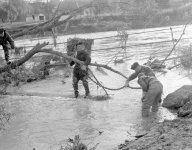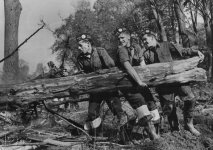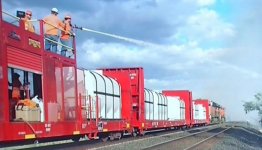- Reaction score
- 7,357
- Points
- 1,140
FJAG said:You know I'm a CPC supporter and I'm not really that concerned about this being a veiled support of the LPC agenda. The CPC isn't really climate change deniers; they just see some different solutions to the problem.
What does concern me is that he's whining about a few domestic operations "stressing" out the CAF. It's true that we're under equipped for high end military operations albeit we're not badly equipped for light and medium weight ones. We're only understaffed at the sharp end because we're grossly overstaffed at the blunt end and as it is we're having troubles meeting recruiting quotas with the establishments that we have.
Let's face it, flood and fire fighting isn't rocket science; it's bull work which our military training and organization has and can easily adapt to.
That was true when we were facing nuclear disaster oriented aid to the civil power and is even more relevant today.
Canada gives DND around $25 billion per year. If we're really stressing out some units or elements for these type of operations then it's our own bloody fault. The CDS needs to get his own house in order before he start whining to the public like Oliver Twist: "Please, Sir. Can I have some more?".
:worms:
Could it be that the type of people interested in war fighting aren't terribly interested in fighting floods and forest fires? We can make them do it once they are in, but can we keep them around when between training to fight first class opponents they spend what should be their summer leave fighting forest fires, and filling sandbags?
Does the budget size matter when the people clearly aren't interested in joining or staying? Perhaps the CDS is making it known the CAF is feeling a bit stretched so we can ramp down the pace of operations and give our deployers a break?






